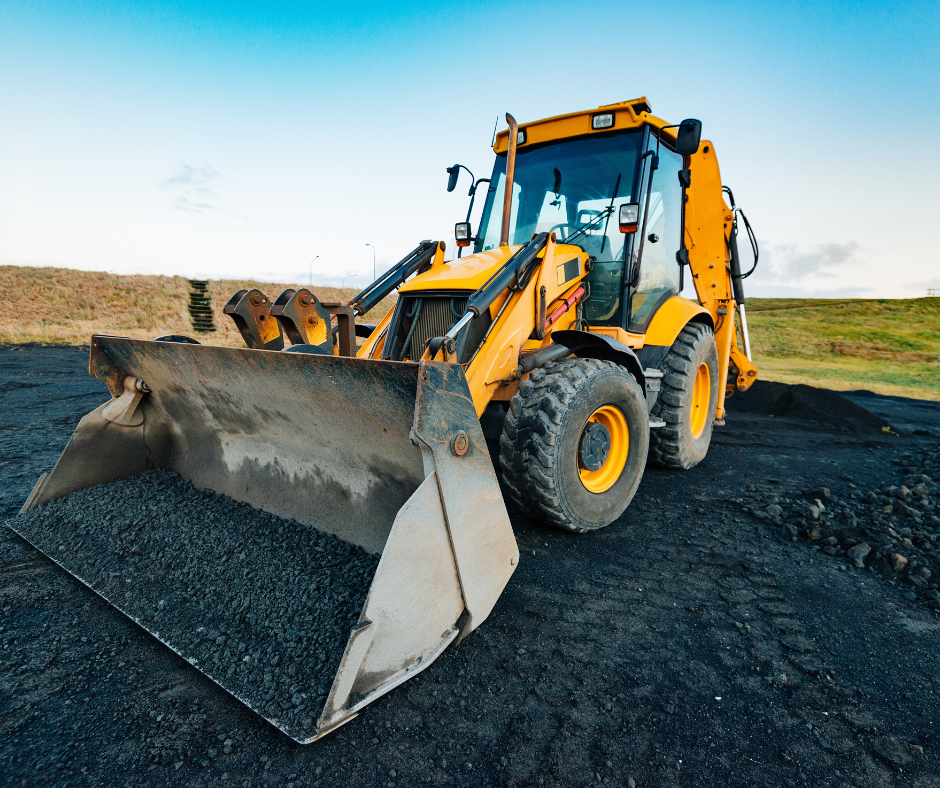Commercial Insurance In Las Vegas
At Harris Insurance, we specialize in offering tailored commercial insurance services, including risk identification, insurance policy review and selection, insurance policy audit support, and claim services. With a history dating back to the 1970s, we bring a personalized and professional approach to each client. With the additions of the Harris Insurance Advantage, our commitment to professionalism, integrity, competitiveness, and transparency, and our White Glove Claim Service, you’ll have the support you deserve for your commercial insurance program.

Comprehensive Insurance Policies for Las Vegas Business Types
At Harris Insurance, we provide a diverse range of specialized policies designed to cover common risks for businesses of all sizes and types. Our offerings include, among others:
Commercial General Liability
This insurance provides protection against claims arising from injuries or property damage that your business causes to other people. It’s essential for incidents like slip-and-fall accidents in your premises or damages caused by your products or operations.
Workers’ Compensation
This coverage is mandatory in most states and provides benefits to employees who get injured or sick from a work-related cause. It includes medical care, wage replacement, and permanent disability benefits, as well as protecting your business from legal complications.
Commercial Auto
If your business uses vehicles, whether owned, leased, or rented, commercial auto insurance covers the risks associated with operating them. This includes coverage for damage to the vehicles and liability coverage in case of accidents causing injury or property damage. It’s essential for incidents like slip-and-fall accidents in your premises or damages caused by your products or operations.
Property Insurance
This covers damages to your business property, including buildings and contents, due to fire, theft, or other covered perils. It’s essential for protecting your physical assets from various risks. It’s essential for incidents like slip-and-fall accidents in your premises or damages caused by your products or operations.
Inland Marine
Despite its name, inland marine insurance is not related to ocean transport, but instead covers products, materials, and equipment when transported over land (like by truck or train) or stored off-site.
Excess and Umbrella Coverage
These policies provide additional liability coverage beyond the limits of your underlying policies (like general liability or auto liability). They kick in when the underlying policy’s limit is exhausted. It includes medical care, wage replacement, and permanent disability benefits, as well as protecting your business from legal complications.
Employee Dishonesty
This covers losses resulting from dishonest acts of your employees, such as theft, embezzlement, or fraud. It’s vital for businesses to protect against internal risks.
Employment Practices Liability
This insurance protects your business against claims by employees alleging discrimination, wrongful termination, harassment, or other employment-related issues.
Cyber Liability
In today’s digital age, this coverage is increasingly important. It protects your business from risks related to electronic data breaches, cyber attacks, and other technology-related security issues.
Directors and Officers Liability
This protects the personal assets of corporate directors and officers, and their spouses, in the event they are personally sued for actual or alleged wrongful acts in managing a company.
Professional Liability Errors & Omissions
Also known as Errors & Omissions, this insurance covers liabilities for errors, mistakes, and negligence in the provision of professional services to clients. This is crucial for businesses like legal, architectural, engineering, and consulting services.
Tailored Insurance Solutions for Diverse Industries
Construction Industry
Clients in the construction industry face a wide array of diverse risks and exposures. From contractual insurance requirements to site specific conditions, the construction industry is unique and ever evolving. At Harris Insurance, we provide tailored solutions for clients in the construction industry. Products such as General Liability, Workers’ Compensation, Property, Commercial Auto, Inland Marine, and others. Our extensive experience in the construction industry has allowed us to stay up to date with the changes that impact contractors. We prioritize assisting our clients with making informed insurance decisions and provide proprietary tools that assist with evaluation.
Professionals (Engineers, Architects, Attorneys, etc.)
Professionals like engineers, architects, attorneys, accountants, physicians, and consultants operate under high standards and often face the risk of lawsuits due to negligence or performance failure. At Harris Insurance, we provide tailored Errors & Omissions (E&O)/Professional Liability insurance designed to defend these professionals against such suits. We provide competitive Errors & Omissions (E&O) solutions, and our comprehensive review process ensures that professionals have a variety of coverage options. This approach aids in making well-informed insurance decisions.
General Industry
Recognizing that there is no one-size-fits-all insurance solution for various business types, at Harris Insurance, we offer a range of products that can be assembled to fit the needs of most businesses, such as manufacturers, auto service facilities, and retail operations. Our team has direct relationships with insurance companies that understand and underwrite policies for general industry businesses. We also offer easy-to-use tools that help businesses compare different insurance quotes, so they can choose the best option for their specific needs.
Contractors
Contractors face unique challenges with complex risk exposures that vary significantly based on their specific trade and project scope. From job site accidents to professional liability concerns, contractors need specialized insurance solutions that address their particular industry demands. At Harris Insurance, we’ve protected Nevada builders for over 50 years with comprehensive coverage options including General Liability, Workers’ Compensation, Tools & Equipment, and Contractor’s Bonds. Our deep understanding of the construction sector allows us to provide tailored insurance packages that address real threats to contracting businesses. We work directly with insurance providers who understand the specific needs of various trades, ensuring you receive protection that matches your exact business requirements.

How Harris Insurance Makes Claims Simple
At Harris Insurance, we don't just process claims—we protect your livelihood when disasters strike. Our straightforward approach keeps your Las Vegas contracting business moving forward:
1
Easy Claim Filing: Within hours of your notification, our team mobilizes—because in construction, every day of downtime costs you money and client trust.
2
Ongoing Support: We fight for your interests against adjusters who might undervalue damage or liability claims, leveraging our century of experience to maximize your protection.
3
Expert Guidance: No insurance jargon or confusing policies—just straight talk about your coverage and claim status from specialists who understand Las Vegas building codes.
4
Rapid Resolution: When a client sues over property damage or a worker suffers injury, we ensure your business doesn't bear the crushing financial burden through efficient claim handling.
5
Always Accessible: While competitors struggle with claim complications, you'll maintain project schedules with our team ready by phone, email, or in-person whenever construction challenges arise.
Why Your Las Vegas Business Needs Comprehensive Commercial Insurance
At Harris Insurance, we understand the multifaceted nature of business risks. Our comprehensive commercial insurance solutions are designed to protect, stabilize, and fortify your business against a myriad of challenges, ensuring you can focus on what you do best – growing your business.
Safeguard Against the Unexpected
In the dynamic world of business, unforeseen incidents such as natural disasters, accidents, or theft can occur at any time. Commercial insurance acts as a safety net, protecting your business against significant financial losses from these unexpected events.
Employee Welfare and Compliance
Employee-related incidents can range from workplace injuries to legal claims. Commercial insurance ensures you’re prepared to handle these challenges, keeping your business compliant and your employees secure.
Cybersecurity Protection
As digital operations become integral to business, cyber threats loom larger. Cyber Liability Insurance is designed to protect your business from digital threats, covering legal fees, recovery costs, and more.
Legal Obligations Fulfilled
Many types of insurance, like Workers’ Compensation, are not just beneficial, but legally required.
Asset and Property Coverage
Commercial insurance solutions can cover damages to your business’s physical assets, including buildings, equipment, and inventory, offering peace of mind against events like fire, vandalism, or other property damage.
Employee Welfare and Compliance
Employee-related incidents can range from workplace injuries to legal claims. Commercial insurance ensures you’re prepared to handle these challenges, keeping your business compliant and your employees secure.
Ensuring Business Continuity
Major disruptions or losses can halt your business operations. Commercial insurance supports your business’s financial stability and helps maintain continuity during challenging times.
Shielding Against Professional Risks
For businesses offering advice or services, Errors & Omissions (Professional Liability Insurance) provides crucial protection against negligence or inadequate service claims.
Mitigating Financial Risks
Manage the financial uncertainties of running a business with commercial insurance policies, providing a financial buffer against potentially crippling claims.
Credibility and Trust
Proper insurance coverage enhances your business’s credibility with clients, investors, and partners, showcasing your commitment to risk management and stable operations.
Employee Satisfaction
A well-insured business is a trusted workplace.
Beyond Corporate Structure
Relying solely on corporate structures for protection can be inadequate. Commercial insurance offers an additional layer of security, safeguarding your business’s and its owners’ interests.
How Do I Determine the Right Coverage for My Business?
At Harris Insurance, we believe that finding the right insurance coverage starts with a deep understanding of your specific business needs. Every business is unique, with its own set of risks and challenges. Our process for determining the right coverage for your business involves several key steps:

1
Initial Consultation and Risk Assessment
We start with an in-depth consultation to understand the nature of your business, industry, and operational nuances. This includes discussing your business size, type, location, number of employees, and the specific nature of your work.
We conduct a thorough risk assessment to identify potential risks your business might face. These can range from property damage, liability risks, and cyber threats, to employee-related risks.
2
Industry-Specific Considerations
Recognizing that different industries have unique insurance requirements, we analyze industry-specific risks. For example, a construction company might have higher risks related to on-site accidents, while a tech company might face greater cyber liability risks.
3
Customized Coverage Solutions
Based on the risk assessment and industry-specific analysis, we tailor insurance solutions to align perfectly with your business needs. This includes recommending specific types of coverage, such as general liability, professional liability, workers’ compensation, or a business owner’s policy.
We also consider additional coverage options for specific risks identified during the assessment, ensuring a comprehensive protection plan.
4
Budget and Policy Limits
We work with you to understand your budget and financial considerations. Our goal is to provide optimal coverage while being mindful of your financial constraints.
We discuss policy limits and deductibles, helping you understand the trade-offs between cost and coverage levels.
5
Ongoing Evaluation and Adjustment
Insurance needs may change as your business grows or evolves. We commit to ongoing policy reviews and adjustments to ensure that your coverage continues to meet your business needs effectively.
6
Expert Guidance and Support
Our team of experienced insurance professionals is here to guide you through every step, providing expert advice and answering any questions you may have.
We ensure that you are not only well-informed about your insurance options, but also confident in the choices you make.
What Happens if My Business Doesn’t Have Adequate Insurance Coverage?
The decision to skimp on insurance coverage or to operate without it can have far-reaching consequences for any business. Understanding the risks and potential fallout of being underinsured or uninsured is crucial for both large and small business owners. Here are some key considerations:

Financial Liability for Damages and Losses
Without adequate insurance, your business bears the full financial burden of any damages or losses. This could be due to natural disasters, accidents on business premises, or lawsuits. The costs could be substantial enough to jeopardize the financial stability of your business.
Legal Ramifications
Certain types of insurance, like workers’ compensation, are legally mandated in many areas. Operating without these can lead to legal penalties, fines, and even criminal charges, depending on the jurisdiction.
Inability to Cover Employee-Related Claims
If an employee gets injured on the job and your business lacks workers’ compensation insurance, you may be responsible for covering all medical expenses and legal costs. This scenario can also lead to lawsuits and significant financial strain.
Reputation Damage
Businesses without proper insurance may suffer reputational damage, especially if they cannot adequately compensate customers or clients for losses or damages. This can lead to a loss of trust and credibility, which is often hard to rebuild.
Business Interruption and Income Loss
Any halt in operations due to unforeseen events like fires or major equipment breakdowns can lead to significant income loss. Recovering from such interruptions without insurance support can be challenging.
Risk to Personal Assets
For small businesses and sole proprietors, the lack of adequate business insurance might mean that personal assets are at risk in the event of a lawsuit or significant debt incurred by the business.
Compromised Growth and Expansion Opportunities
Being uninsured or underinsured can hamper your ability to take on new opportunities or expand. Many contracts require proof of adequate insurance, and not having it can limit your business’s growth potential.
Increased Stress and Uncertainty
Operating without the safety net of insurance can create constant stress and uncertainty. Business owners may find themselves constantly worried about the potential for a crippling financial event.
At Harris Insurance, we are dedicated to providing personalized service to help you secure the right coverage. Your business’s security is our priority, and we are here to ensure that you are protected against the unexpected, every step of the way.
Get in Touch
For more insurance information, please contact us here. We will get back to you shortly.
6445 W. Sunset Rd., Ste. 156 Las Vegas, NV 89118 (Located In Sunset Business Center)
Monday to Friday 7:30 to 4:30 PM Saturday and Sunday CLOSED
702.202.6611
